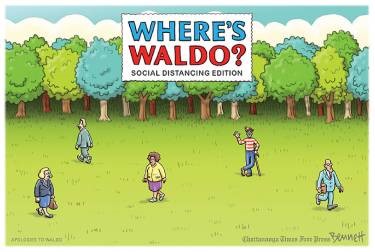By Bill Naron
One definition for tolerance is “acceptance of others as unique expressions of specific character qualities in varying degrees of maturity.” This definition gets to the heart of the matter in two ways. The first draws on the biblical truth that God knit us together and formed us (Psalm 139:13). We bear His image, and we bear that image in unique ways. Second, this definition acknowledges that we are all at different places and stages on our journey. This is important for us to remember as we engage with one another in our church community.
The pandemic we are in has presented the church with a unique situation. Think about the dystopian, almost apocalyptic timeframe that defines this pandemic. Cities are shut down, and many people are staying home or out of work. Riots are happening, and people are being encouraged to refrain from close contact. It almost seems like a sci-fi movie!
One of the dangers often spoken of regarding social media is that people often speak harsher than they would in person. I believe that this is truer in the COVID age than ever before. The debates are increasingly more divisive, and tensions are increased. How we talk to one another and how we handle conflict is very important.
In steps the character quality of tolerance. Many people are going to find themselves having tough conversations as churches begin to come back together. One of the often-unrecognized by-products of this political climate and this pandemic is wounded relationships. Friendships have been fractured, feelings have been hurt, and judgments have been passed. Many people have experienced hurt and we have to be willing to make amends. Tolerance helps us graciously deal with one another. One aspect of tolerance is the ability to respond graciously to others. Ephesians 4:29 states, “Let no corrupt communication proceed out of your mouth, but that which is good to the use of edifying, that it may minister grace unto the hearers.” We must learn to speak graciously to one another. No matter your opinion on the topics of the day, always remember that people matter more. Be gracious and kind to your brothers and sisters at this time. This is what the Lord has been dealing with my heart on and it is not easy, but it is absolutely necessary.
Views – 248
 Follow
Follow
